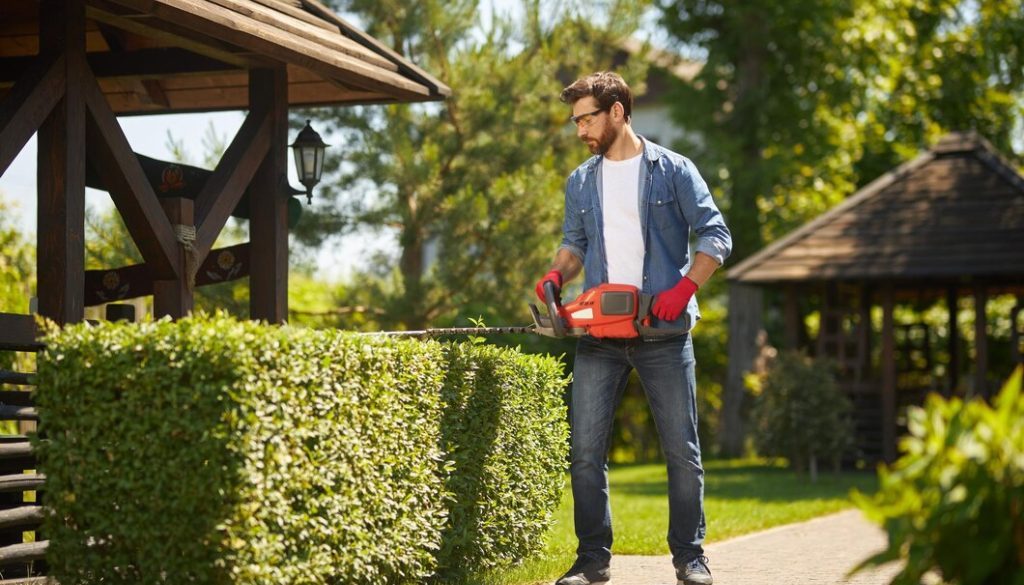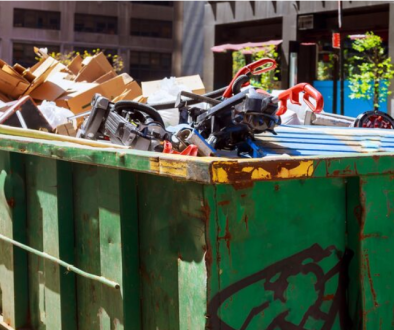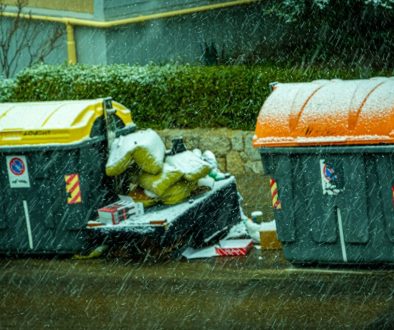Landscaping can transform outdoor spaces, creating visually appealing and functional environments while potentially increasing property value. However, planning and executing a successful landscaping project requires meticulous attention to various aspects, including waste management and the use of sustainable materials. The impact of landscaping projects on the environment, waste generation, and resource consumption is undeniable; therefore, adopting environmentally conscious practices is essential for responsible landscaping.
In this blog article, we will explore the essential elements of waste management and sustainable material use in landscaping projects, focusing on the integral role of skip hire, aggregates, and gravel in ensuring an environmentally considerate approach. We will provide practical tips for effective waste disposal, material recycling, and selecting eco-friendly landscaping materials, all of which can help minimise your project’s environmental impact. Additionally, we will demonstrate how partnering with a reliable, waste-conscious service provider can simplify your landscaping project’s waste management needs, ensuring efficient rubbish disposal and maintaining compliance with environmental regulations.
Whether you are a professional landscaper or a homeowner embarking on a do-it-yourself landscaping project, this guide will equip you with valuable insights and best practices for effectively managing waste and selecting sustainable materials. By implementing these strategies, you can create beautiful outdoor spaces while contributing to a greener future for our planet and the landscaping industry.
Efficient Waste Management in Landscaping Projects: The Role of Skip Hire
Managing waste effectively is essential when navigating a landscaping project, as it ensures compliance with environmental regulations, contributes to cost-efficiency, and maintains a tidy worksite. Here are some crucial factors to consider when hiring a skip for your waste management needs:
1. Select the Right Skip Size: Determine the appropriate skip size based on the anticipated volume and types of waste your landscaping project will generate, considering factors such as project scope, materials used, and site constraints.
2. Adhere to Placement Regulations: Investigate local permit and placement regulations for skips, secure necessary permissions, and comply with any specifications for skip location and visibility.
3. Partner with a Waste-Conscious Provider: Choose skip hire providers that prioritise recycling efforts and have robust waste sorting facilities, ensuring responsible and efficient waste management throughout your landscaping project.
Material Recycling Strategies: Minimising Waste and Maximising Sustainability
Adopting recycling strategies can help minimise waste generation in landscaping projects, reducing environmental impact and promoting a more sustainable approach. Consider these tips for enhancing your material recycling efforts:
1. Separate Waste Materials: Establish waste segregation zones on your landscaping site, providing clearly labelled containers for different waste types such as wood, metal, plastic, and rubble to enable efficient recycling processes.
2. Repurpose Existing Materials: Evaluate your landscaping site for any materials that can be repurposed in your project, such as bricks, stones, or timber, which can reduce waste generation and encourage sustainable design.
3. Procure Recycled Landscaping Materials: Opt for recycled landscaping materials when possible, such as reclaimed wood or recycled aggregates, which can contribute to a lower environmental footprint and cost savings for your project.
Choosing Sustainable, Eco-Friendly Landscaping Materials
Selecting eco-friendly materials for your landscaping project is an essential aspect of contributing to environmental sustainability. Follow these guidelines for making responsible material choices:
1. Opt for Local and Sustainable Sources: Choose landscaping materials such as aggregates, gravel, timber, and sand that are sourced from local and sustainable suppliers, reducing material transportation emissions and supporting responsible resource use.
2. Consider Longevity and Low-Maintenance Options: Invest in durable, long-lasting landscaping materials that require minimal maintenance, reducing resource consumption and waste generation over time.
3. Assess Environmental Impact: Evaluate the environmental impact of your material choices, considering factors such as production processes, recyclability, and embodied energy.
Incorporating Sustainable Practices into Your Landscaping Project
By embracing sustainable practices throughout your landscaping project, you can create beautiful outdoor spaces that respect the environment and promote long-term sustainability. Here are some ideas for integrating eco-friendly strategies within your landscaping approach:
1. Water Conservation: Implement water conservation features such as rainwater harvesting and drought-tolerant plants, reducing the demand for irrigation and promoting more efficient water use.
2. Energy-Efficient Lighting: Opt for LED or solar-powered lighting options, which consume less energy than traditional lighting solutions and can help reduce your project’s long-term environmental impact.
3. Pollinator-Friendly Plantings: In your landscaping design, select native and pollinator-friendly plants that will contribute to local biodiversity and support vital ecosystems.
Conclusion
Effective waste management and the selection of sustainable materials are vital components of a successful and environmentally responsible landscaping project. By carefully considering your skip hire needs, adopting recycling strategies, and making eco-conscious choices for landscaping materials, your project can enjoy the benefits of a holistic and sustainable approach to landscaping.
Partnering with a trusted, environmentally conscious skip hire and aggregate provider like Enviro Skip Hire can significantly support your landscaping project’s waste management requirements, ensuring efficient rubbish disposal, access to sustainable aggregates and gravel, and adherence to environmental regulations. Through responsible waste management practices and eco-friendly landscaping strategies, we can create stunning outdoor spaces that contribute to a cleaner, greener future for our planet and the landscaping industry.




